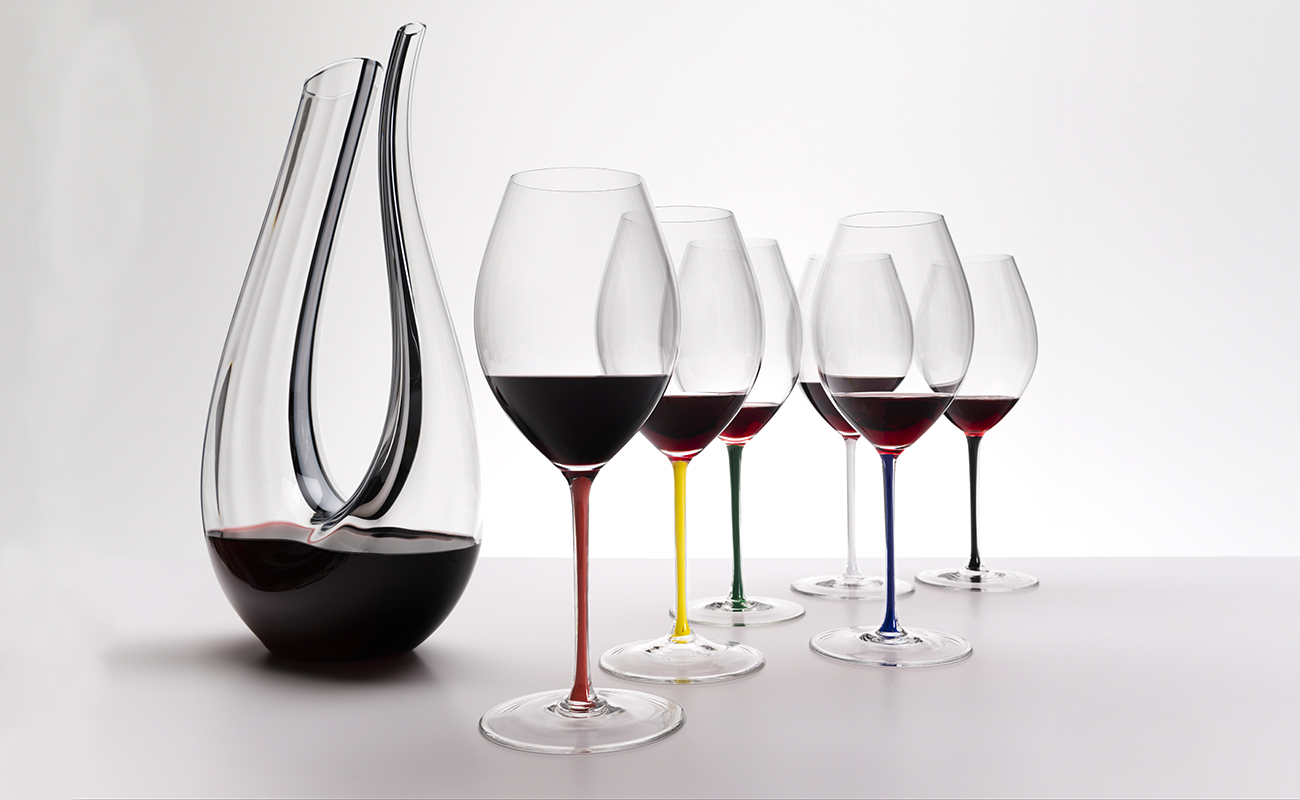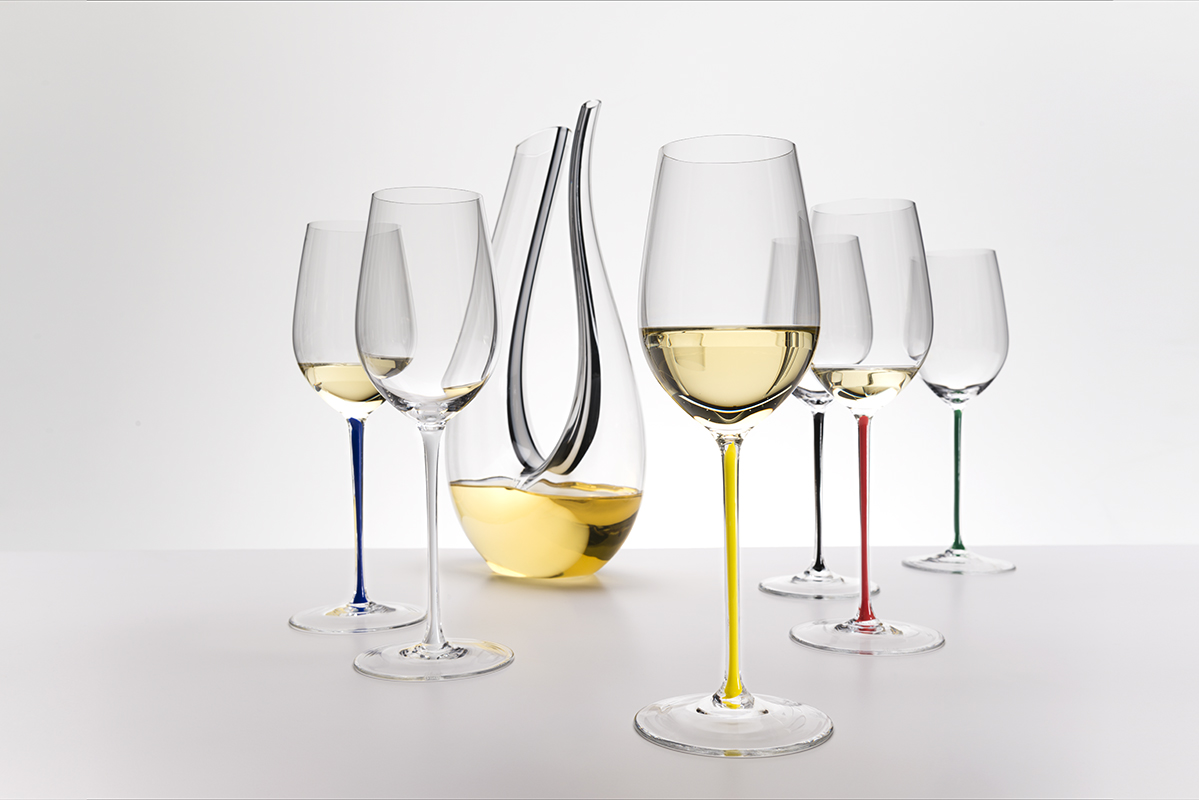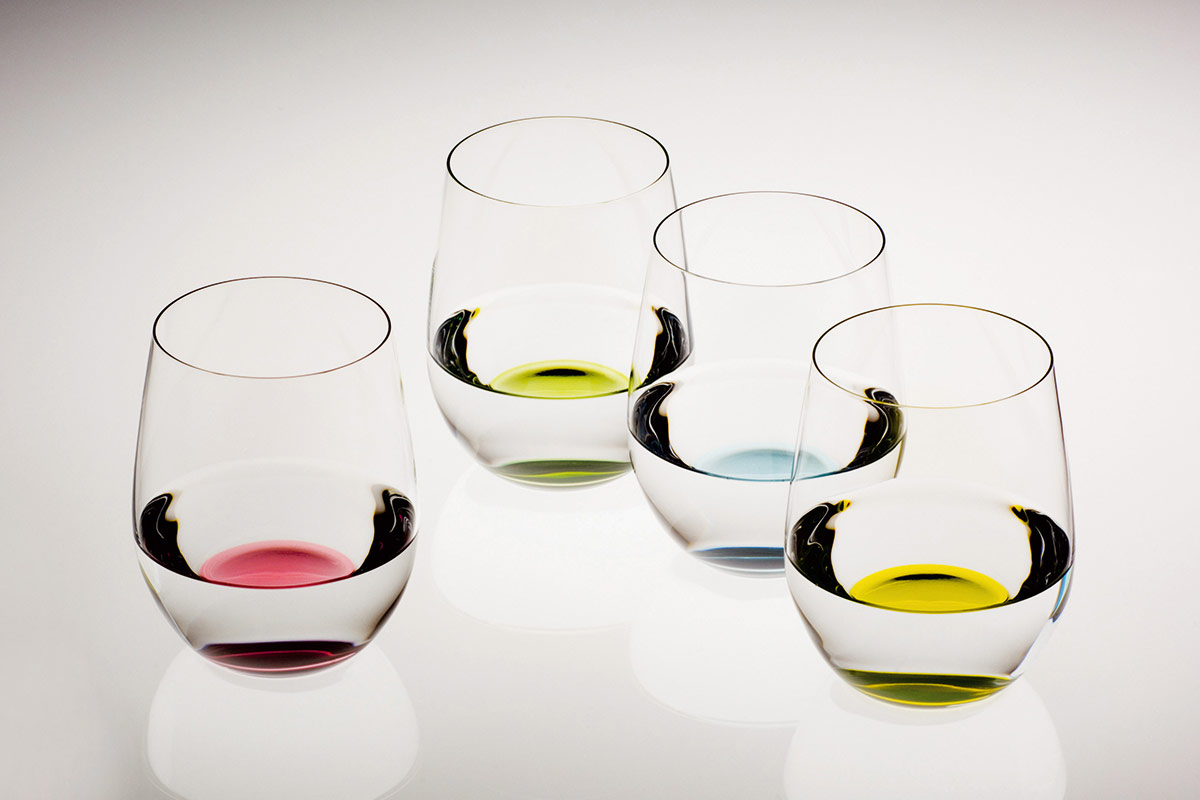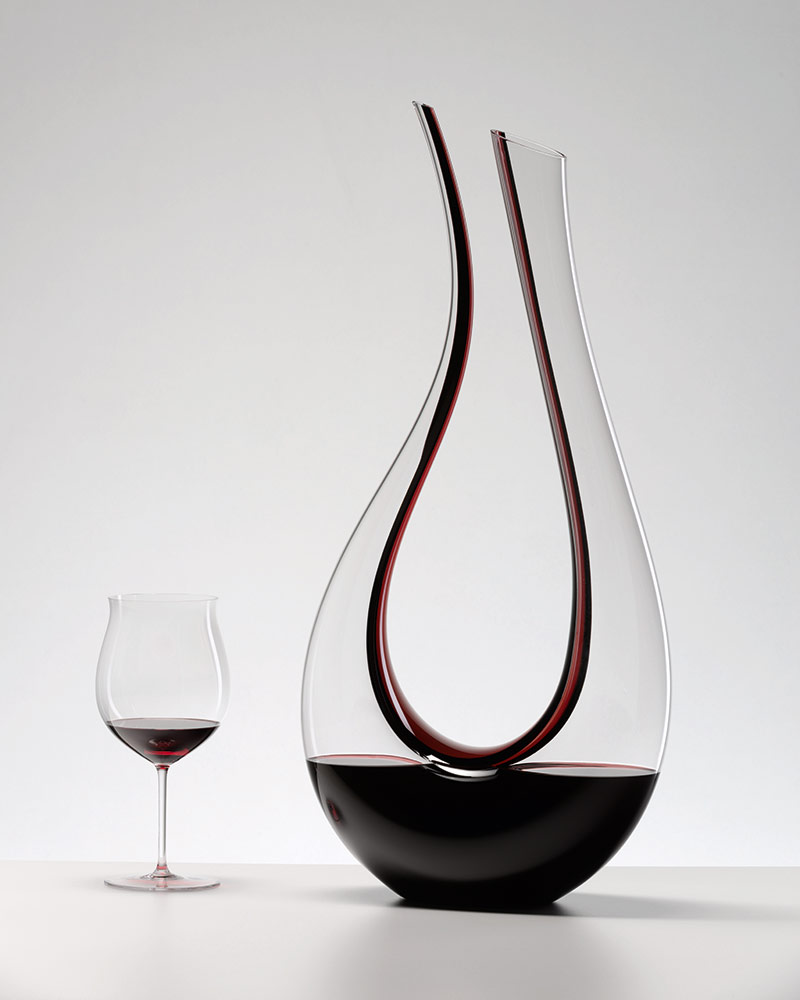This website uses cookies so that we can provide you with the best user experience possible. Cookie information is stored in your browser and performs functions such as recognising you when you return to our website and helping our team to understand which sections of the website you find most interesting and useful.
Maximilian Riedel on his personal crusade against champagne flutes, and working with Sir Elton John
By Michelle Johnson | 8 November 2017 | Food & Drink
The CEO of Austrian glassmaker Riedel takes Tempus on a very special wine tasting as he revolutionises glassware once again

Whether they're making exclusive decanters for Sir Elton John or inventing new manufacturing processes to add colour to their collections, Austrian crystal glassmakers Riedel is as innovative as it was when the family-run company was founded in Bohemia in 1756. 11 generations later, CEO Maximilian Riedel is at the helm of the company that is still revolutionising how we drink wine.
Never as simple as choosing a glass based on whether your wine is red or white, Riedel's glass shapes aims to enhance the flavours of different grapes and vintages – whether that's a rounder bowl for an oaked chardonnay or a large tapered shape for a burgundy – by allowing the drinker to take in the aroma and taste in a way that gets the best out of the grape.
And it works. Tempus took part in one of Riedel's tasting experiences in order to experience the difference, tasting various grapes in a variety of glass shapes to find what matched the grapes best, and we were blown away by the extreme variations. Eager to find out more, we grilled Riedel himself about the company's rich heritage and exciting innovations – and his own personal crusade against the champagne flute…
Tell us about the shapes of the glasses, because when I experienced your masterclass I was amazed at the difference a shape really does make to the taste of a wine…
Our glasses are based on the concept of form over function. Discovering the correct shapes to make the most of different wines is what makes us unique, and is the key to our success. When people try the masterclass for the first time, their reaction is always my biggest joy. We have the main collection, which anticipates the flavour of most wines, and we have a collection of mouth-blown Sommelier glasses for rare wines. In general, we advise people to spend the same amount on your glass as you would on a bottle of wine. >>
Related Link: Tempus taste-tests Wilton's restaurant's indulgent new Oyster Master Class

What would you say is your greatest innovation in recent years?
In terms of glass making we are adding colour using a unique glass-making technique where we melt hot and cold glass together to make a single piece. In 4000 years nobody has done this, but with this process we have created the colourful stems for our new collection, Fatto a Mano. We're very proud, especially when we speak to other glassmakers who say the process is impossible – it's a trade secret.
What inspired these bright colours?
I love colour – you should see me now in my golden jacket. I like using colour to express character, and I think that is true of your dinner tables as well. At Riedel we have a brilliant glassmaker, Rudy, who has worked for us over four generations. He brought the idea to our attention, and we're delighted by what he has achieved. It's a beautiful product.
A controversial subject, perhaps, but what is the best shape of glass for champagne – it's not actually the flute, correct?
Correct! This is my personal crusade. My first job was at a champagne house and there I learned that professional don't use flutes. They gave me so many reasons to use a tulip-shaped glass, but the truth is you can't appreciate the taste of champagne in a flute. I created our champagne wine glass in the hopes of breaking the tradition, and it's now one of the most popular shapes in our collection.
You also make beautiful mouth-blown decanters. What are some of the benefits of decanting wine?
There are three reasons to decant wine. To open up a new wine and allow it to breathe – this enhances the flavour of red, oaky whites and even champagne. For older wines, we decant in order to strip the wine from its sediment, which can settle on the bottom of a bottle. Finally, it looks great, and can add to the fun and excitement.
You've created a very special rainbow harp decanter for Sir Elton John's AIDS Foundation. Could you tell us about that collaboration?
I'm always very pleased when we can create something for a good cause. 10 years ago we created the pink glass to benefit breast cancer research, and so when Sir Elton was mention by a friend we were delighted to create something to benefit his foundation. Obviously, we thought to create a musical instrument – the harp – and he immediately said yes to the idea.>>

Does Riedel's long family history have an impact on how you do business today?
In some ways, yes. We are very conscious of that history, and I feel very much related to our past. As a fairly small family-run company it's always been very clear that we want it to stay in the family. My biggest goal in life is to pass on this torch to the next generation, and make sure they have a strong company to come into. We have a lot of heritage, but we are a very modern company using modern tools and innovating all the time – so I say that we don't live in the past, but we do learn from it.
Is it true that your grandfather disliked the idea of your stemless glass O Collection?
Yes, my grandfather saw the collection and was not a big fan – he believed very strongly that wine glasses should be held by the stem rather than the bowl of the glass – but obviously I had a strong character and held my ground. It was a very simple idea, but really revolutionary in the wineglass industry. I was living in New York, and had a friend (he became barman of the year) who was very short and could barely be seen behind the tall glasses on the bar. The line became very successful – it's great for a city pied á terre with limited cabinet space for instance.
Where do you get your inspiration for your various glass shapes and decanters?
I do not want to say it's in our genes, but our inspiration comes from everyday living. We thrive to always be ahead of the competition. We love wine and we love food, so we think about how to improve and design as an everyday purpose, for our personal needs, and then we are happy the consumer feels the same way as we do.
What is you favourite wine?
My favourite grape variety is pinot noir – it's the most fruitful grape, and you can find it in most champagne and rose. But as long as the wine is good and your friends are surrounding you, then you shall have a good time. Wine bring people together even when oceans divide them.








